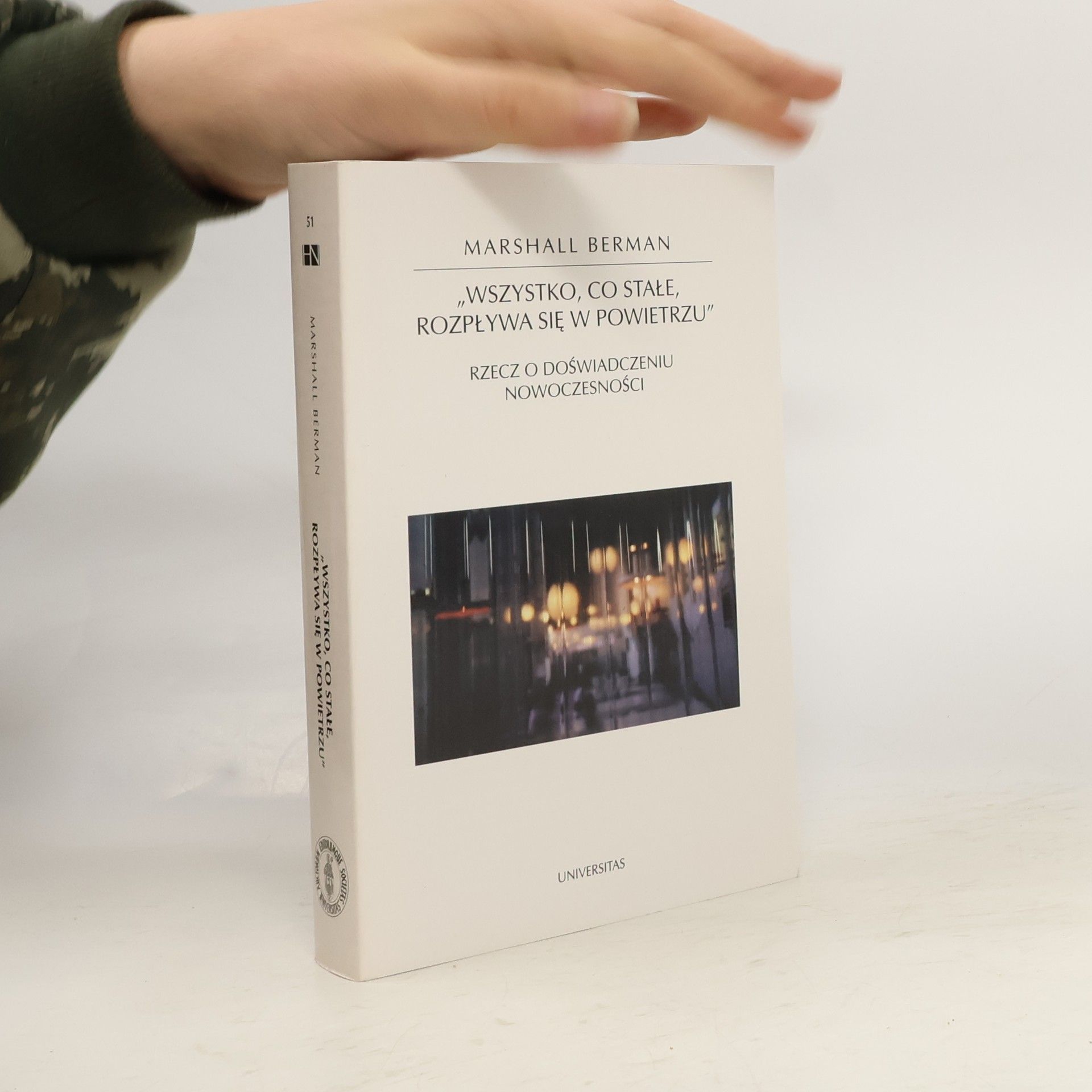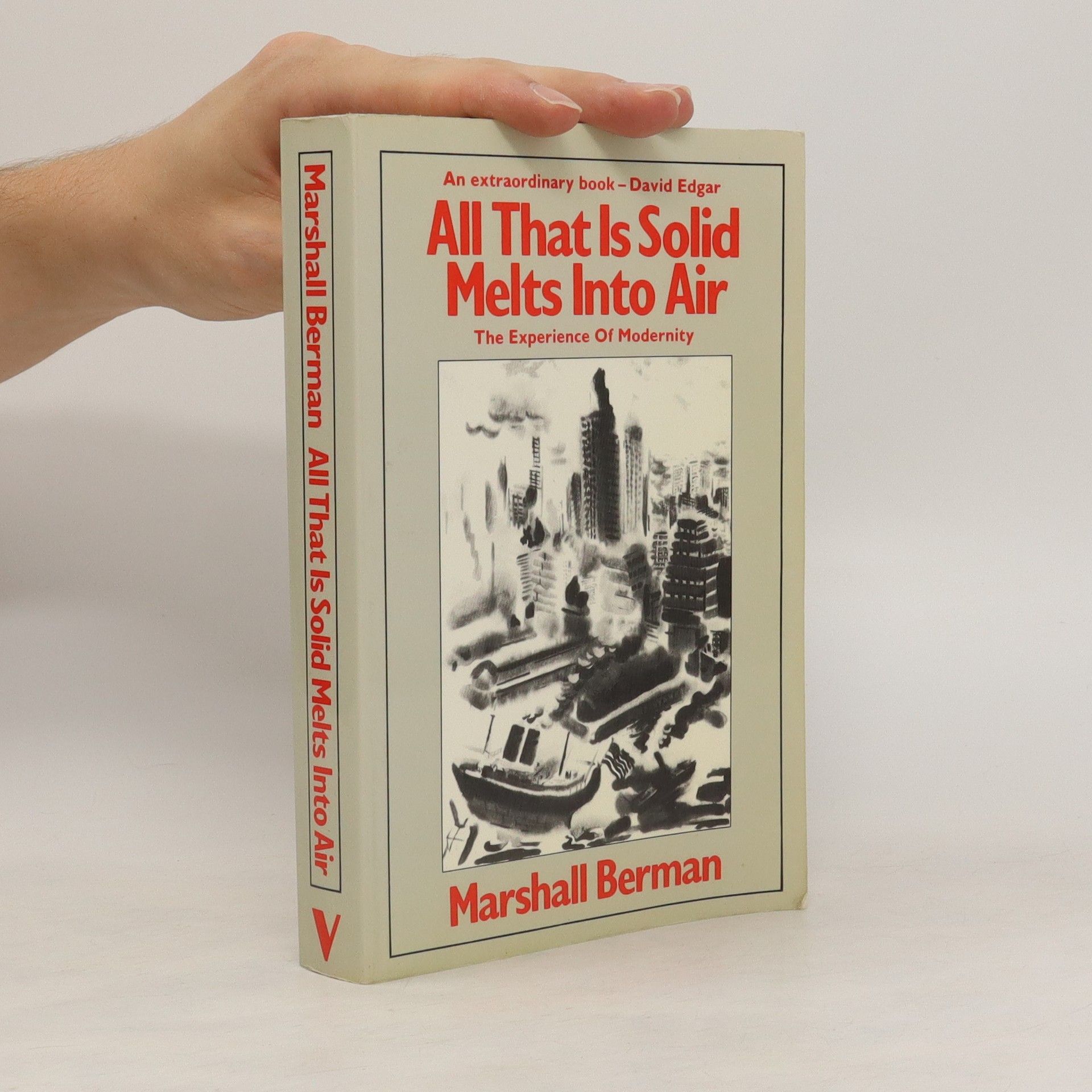The experience of modernization -- the dizzying social changes that swept millions of people into the capitalist world -- and modernism in art, literature and architecture are brilliantly integrated in this account.
Marshall Berman Livres
Marshall Berman était un philosophe et écrivain américain dont l'œuvre s'est profondément penchée sur l'expérience de la modernité et de l'urbanisme. Son écriture se caractérise par sa capacité à relier les tendances historiques à des observations personnelles et des inflexions situationnelles. À travers une perspective humaniste marxiste, il a exploré comment les forces sociales et politiques se manifestent dans la vie individuelle et les paysages urbains. L'œuvre de Berman invite les lecteurs à considérer les dynamiques du monde moderne et leur impact sur la condition humaine.


"Wszystko, co stałe, rozpływa się w powietrzu"
rzecz o doświadczeniu nowoczesności
- 459pages
- 17 heures de lecture